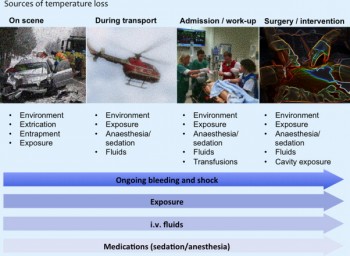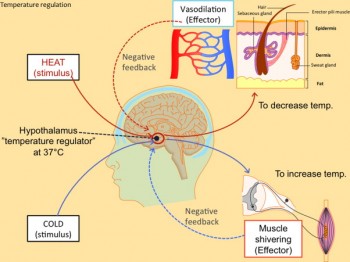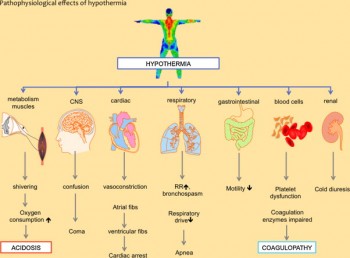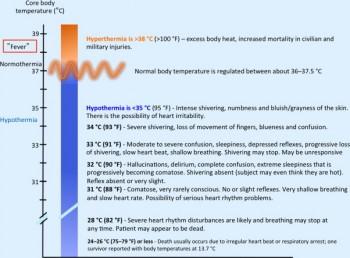24/01/2013
Hypothermie et trauma: Un point 2013
Clinical and translational aspects of hypothermia in major trauma patients: From pathophysiology to prevention, prognosis and potential preservation
http://dx.doi.org/10.1016/j.injury.2012.12.027
_______________________________
Un revue très synthétique à lire, notamment le paragraphe portant sur le recours à une hypothermie induite en cas de traumatisme sévère.
_______________________________
Generally, hypothermia is defined as a core temperature <35°C. In elective surgery, induced hypothermia has beneficial effects. It is recommended to diminish complications attributable to ischemia reperfusion injury. Experimental studies have shown that hypothermia during hemorrhagic shock has beneficial effects on outcome. In contrast, clinical experience with hypothermia in trauma patients has shown accidental hypothermia to be a cause of posttraumatic complications. The different etiology of hypothermia might be one reason for this disparity because induced therapeutic hypothermia, with induction of poikilothermia and shivering prevention, is quite different from accidental hypothermia, which results in physiological stress. Other studies have shown evidence that this contradictory effect is related to the plasma concentration of high-energy phosphates (e.g., adenosine triphosphate [ATP]). Induced hypothermia preserves ATP storage, whereas accidental hypothermia causes depletion. Hypothermia also has an impact on the immunologic response after trauma and elective surgery by decreasing the inflammatory response. This might have a beneficial effect on outcome. Nevertheless, posttraumatic infectious complications may be higher because of an immunosuppressive profile. Further studies are needed to investigate the impact of induced hypothermia on outcome in trauma patients.
_______________________________
Quatre plaques pour une lecture rapide
| Tags : hypothermie





Les commentaires sont fermés.